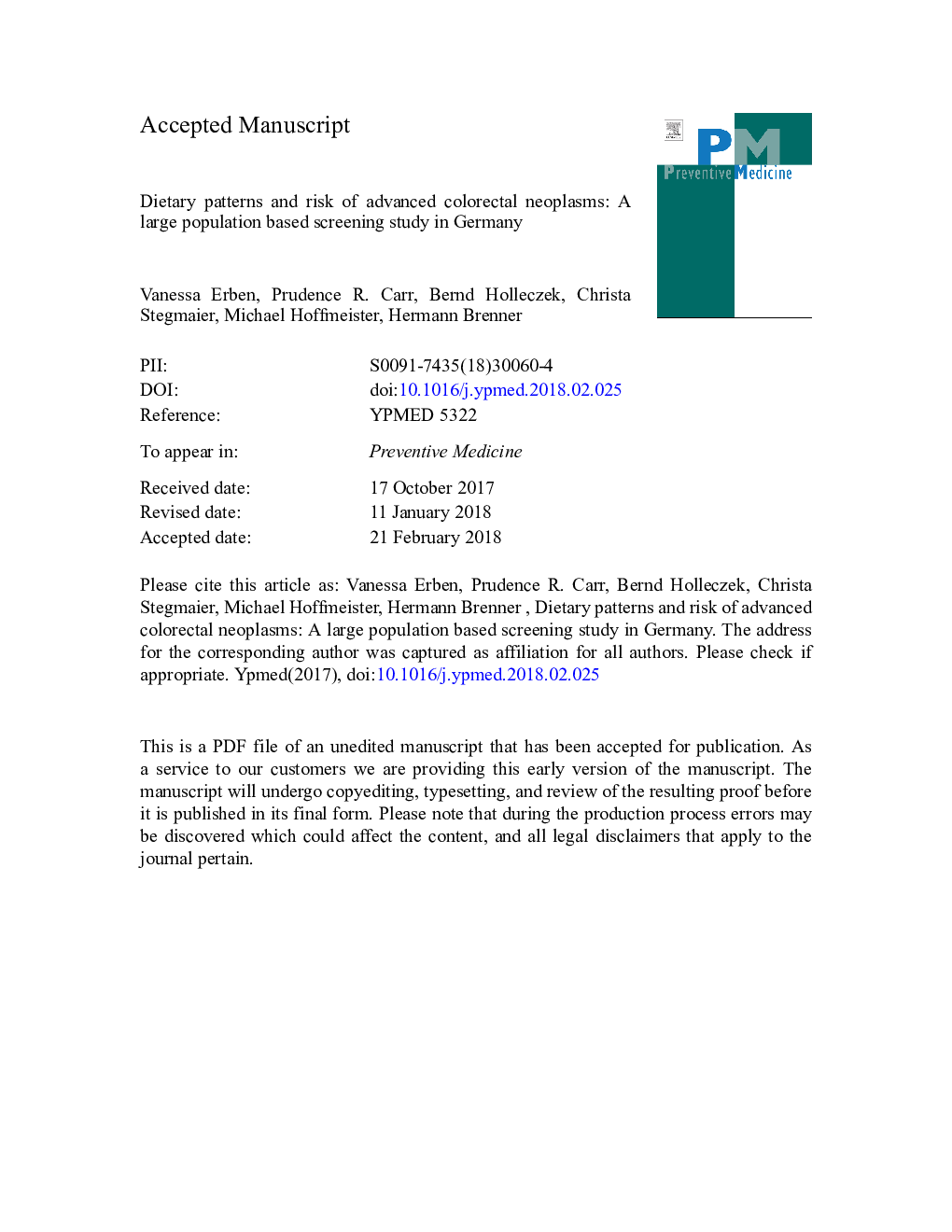| Article ID | Journal | Published Year | Pages | File Type |
|---|---|---|---|---|
| 8693554 | Preventive Medicine | 2018 | 27 Pages |
Abstract
Specific components of the diet such as red and processed meat have been associated with the risk of developing colorectal cancer. However, evidence on the association of dietary patterns with colorectal neoplasms is sparse. The aim of this study was to analyze the association of dietary patterns with prevalence of advanced colorectal neoplasms among older adults in Germany. A cross-sectional study was conducted among participants of screening colonoscopy in Saarland, Germany, who were enrolled in the KolosSal study (Effektivität der Früherkennungs-Koloskopie: eine Saarland-weite Studie) from 2005 to 2013. Information on diet and lifestyle factors was obtained through questionnaires and colonoscopy results were extracted from physicians' reports. Associations of a priori defined dietary patterns (vegetarian or adapted versions of the Healthy Eating Index [HEI] and the Dietary Approaches to Stop Hypertension [DASH] index) with the risk of advanced colorectal neoplasms were assessed by multiple logistic regression analyses with comprehensive adjustment for potential confounders. A total of 14,309 participants were included (1561 with advanced colorectal neoplasms). Healthier eating behavior was associated with lower prevalence of advanced colorectal neoplasms in a dose-response manner. Adjusted odds ratios (95% confidence intervals) comparing the highest with the lowest categories of adapted HEI and DASH were 0.61 (0.50, 0.76) and 0.70 (0.55, 0.89), respectively. No significant associations were observed for a vegetarian eating pattern (adjusted OR 0.80 (0.55, 1.17)). Healthy dietary patterns, as described by a high HEI or DASH score, but not a vegetarian diet alone, are associated with reduced risk of advanced colorectal neoplasms.
Keywords
Related Topics
Health Sciences
Medicine and Dentistry
Complementary and Alternative Medicine
Authors
Vanessa Erben, Prudence R. Carr, Bernd Holleczek, Christa Stegmaier, Michael Hoffmeister, Hermann Brenner,
